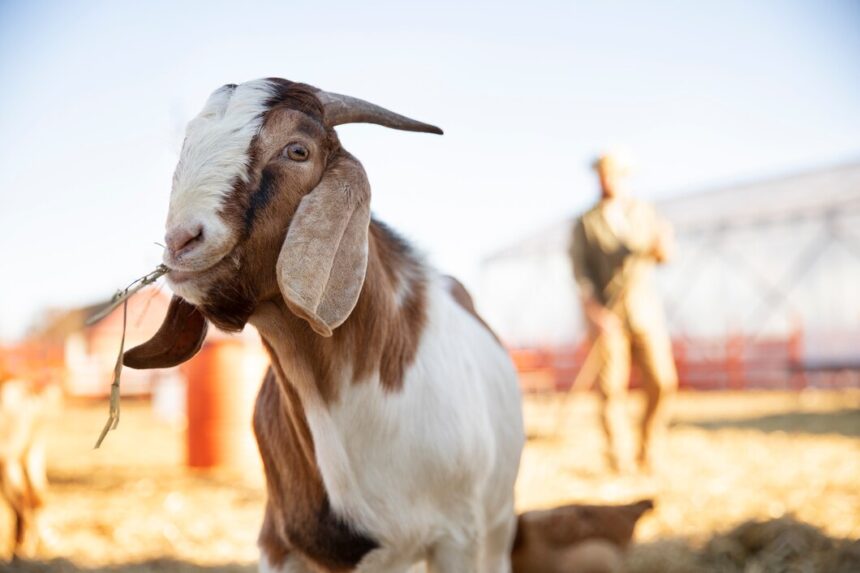Boer goats, recognized for their hardiness and exceptional meat quality, have become a cornerstone of South Africa’s livestock industry. Breeding and farming Boer goats require a comprehensive understanding of their unique characteristics and the agricultural landscape of the country. In this article, we explore 10 essential aspects of breeding and farming Boer goats in South Africa.
1. Adaptability to South African Conditions:
Boer goats are well-suited for South Africa’s diverse climates, displaying adaptability to various terrains and weather conditions. From the arid regions to more temperate zones, Boer goats thrive, showcasing their resilience.
2. Meat Quality and High Growth Rates:
Boer goats are renowned for their exceptional meat quality and rapid growth rates. The breed’s ability to convert forage efficiently into muscle makes it a preferred choice for those focusing on meat production.
3. Maternal Instincts and High Fertility:
Boer goats demonstrate strong maternal instincts and high fertility rates. This contributes to successful kidding seasons, where does efficiently raise healthy kids, ensuring a productive and expanding herd.
4. Selective Breeding for Desired Traits:
Successful Boer goat farming involves a commitment to selective breeding. By carefully choosing breeding stock based on desired traits such as fast growth, good conformation, and resistance to diseases, farmers can enhance the overall quality of their herd.
5. Understanding Color Genetics:
Boer goats exhibit a variety of coat colors, and understanding color genetics is crucial for breeders. While coat color does not directly impact meat quality, it plays a role in maintaining breed standards and preferences.
6. Parasite Management:
Boer goats can be susceptible to internal parasites, and effective parasite management is vital for maintaining herd health. Rotational grazing, proper sanitation, and strategic deworming are integral components of a successful parasite control program.
7. Nutritional Requirements and Forage Management:
Understanding the nutritional needs of Boer goats is essential for optimal growth and reproduction. Farmers should invest in quality forage, supplementing when necessary, to meet the nutritional requirements of the herd.
8. Herd Health and Disease Prevention:
Proactive herd health management is critical for Boer goat farming. Regular vaccinations, routine health checks, and quarantine procedures for new animals are essential to prevent the spread of diseases within the herd.
9. Market Demand and Commercial Viability:
Boer goats are highly sought after in both local and international markets. The breed’s reputation for quality meat has led to a consistent demand, making Boer goat farming a commercially viable venture for many South African farmers.
10. Investment in Infrastructure:
Successful Boer goat farming requires investment in infrastructure and facilities. Adequate fencing, shelter, and handling facilities contribute to the overall well-being of the herd and facilitate efficient management practices.
Breeding and farming Boer goats in South Africa offer a rewarding endeavor for those seeking a robust livestock breed with a focus on meat production. The Boer legacy extends beyond its adaptability and meat quality, encompassing traits like high fertility and maternal instincts. By embracing the unique characteristics of Boer goats and implementing effective management practices, South African farmers can contribute to the continued success and prominence of this exceptional breed in the country’s agricultural landscape.
Join 'Farmers Mag' WhatsApp Channel
Get the latest Farming news and tips delivered straight to your WhatsApp
CLICK HERE TO JOIN






